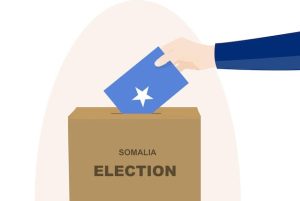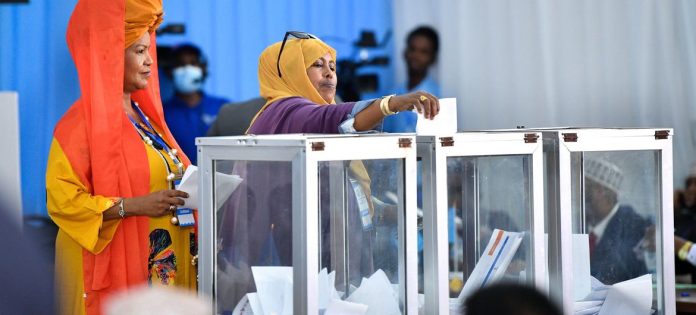Facebook Twitter (X) Instagram Somali Magazine - People's Magazine
The interim committee established by Somalia’s parliament to draft electoral laws and design frameworks for the upcoming elections has officially elected its leaders. Former Deputy Prime Minister MP Mahdi Guled has been chosen as chairman, with Senator Iftin Hassan Iman Baasto serving as deputy chairman. This election took place during a meeting at Villa Hargeisa in Mogadishu, attended by Abdullahi Omar Abhirow, the second deputy chairman of the Somali People’s Assembly.
Key Leadership Roles Defined
The committee, tasked with shaping Somalia’s electoral structure for 2026, will oversee the formulation of rules regarding elections, political parties, and the setup of a dedicated election committee. The leadership is now set to navigate challenges and coordinate electoral preparations under recently outlined government mandates.
Constitutional Controversy and Criticism
The formation of the committee has sparked significant backlash from certain political figures. MP Abdirahman Abdi Shakur condemned the committee’s establishment, arguing it was unconstitutional under Somalia’s transitional government. Abdi Shakur claimed the committee’s creation bypasses constitutional guidelines, raising questions about its legitimacy.

Alignment with National Consultative Council’s Vision
The leadership elections for the interim committee align closely with the National Consultative Council’s (NCC) recent agreement. Signed by President Hassan Sheikh Mohamud, Prime Minister Hamza Abdi Barre, and regional leaders, the NCC’s framework set clear timelines: local, regional, and municipal elections are to be held in June 2025, with parliamentary and presidential elections scheduled for September 2025. The NCC agreement also mandates the establishment of a National Independent Electoral Commission to oversee these elections, aiming to ensure transparency and adherence to democratic principles.
Future of Somalia’s Electoral Landscape
With leadership in place, the committee is expected to begin drafting the legal frameworks and operational guidelines needed to secure a fair electoral process. Despite the criticism, the committee is moving forward, aiming to facilitate elections that reflect Somalia’s evolving political landscape and the demands of its citizens.

